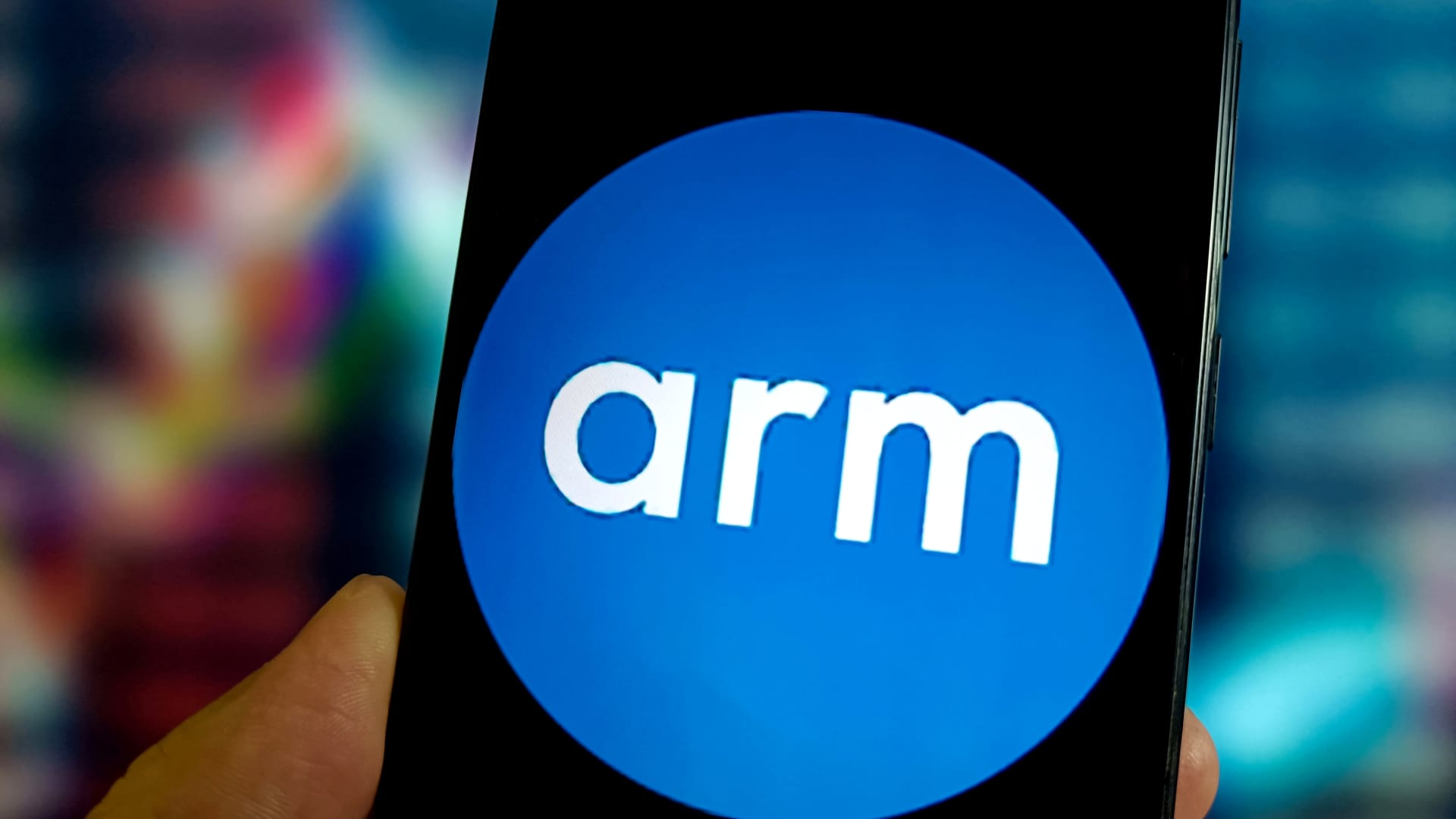
SoftBank plans to list Arm in the U.S.
CFOTO | Future Publishing | Getty Images
Arm, the chip designer owned by Japan’s SoftBank, filed for a Nasdaq listing on Monday, positioning itself to go public during a historically slow period for tech IPOs.
The company wants to trade under the ticker symbol “ARM.”
Arm reported $524 million in net income on $2.68 billion in revenue in its fiscal 2023, which ended in March, according to the filing. Arm’s 2023 revenue was slightly down from the company’s 2022 sales of $2.7 billion.
The U.K.-based company filed confidentially for a listing in the U.S. earlier this year after previously announcing it would go public in the U.S. over the U.K., dealing a blow to the London Stock Exchange.
Arm is one of the most important chip companies. It sells licenses to an instruction set at the heart of nearly every mobile chip, and increasingly, PC and server chips as well. In recent years, it has aimed to sell more complete chip designs, which is more lucrative.
Arm chips are made by companies including Amazon, Alphabet, AMD, Intel, Nvidia, Qualcomm, and Samsung, according to the filing. Its technology is also included in Apple’s chips for iPhones. Arm said that its technology was included in over 30 billion chips shipped in its fiscal 2023. Arm typically takes a fee on every chip that is shipped using its technology.
SoftBank originally sought to sell Arm to chip giant Nvidia, but the deal faced major pushback from regulators, who raised concerns over competition and national security. SoftBank took Arm private in 2016 in a deal valued at $32 billion.
Arm did not provide a projected share price, so it’s not yet possible to estimate its valuation.
A critical component
Arm, with just under 6000 employees, plays a pivotal role in the world of consumer electronics, designing the architecture of chips that are found in 99% of all smartphones, making it a key provider of technology to Apple, Google and Qualcomm.
The company was founded in 1990 as a joint venture between several companies and Apple to create a low-power processor for battery-powered devices. It first went public in 1998, before being taken private in 2016 by SoftBank.
But the company is also facing headwinds from a slowdown in demand for products like smartphones, which has hit chip firms across the board. Arm’s net sales fell 4.6% year-on-year in the second quarter, while the unit swung to a loss, according to SoftBank’s earnings release. SoftBanks’ beleaguered Vision Fund, meanwhile, has racked up billions of dollars in losses of late due to tech bets that soured in a high interest rate environment.
In its filing, Arm made the case that its technology would be essential for AI applications, although it focuses on central processors, not the graphics processors that are required for creating big AI models. “The CPU is vital in all AI systems, whether it is handling the AI workload entirely or in combination with a co-processor, such as a GPU or an NPU,” Arm said in the filing.
Arm identified x86, the instruction set used in Intel and AMD processors, as well as RISC-V, an open source instruction set backed by several big tech companies, as sources of competition.
Arm is poised to hit the market at a time when investors are flocking to next-generation semiconductors because of the demand spurred by artificial intelligence, most notably the soaring popularity of generative AI applications. Nvidia, the chipmaker most at the heart of the generative AI boom, has seen its stock price triple this year.
However, the tech IPO market has been largely dormant for the past 20 months, with no notable venture-backed deals since Dec. 2021. Last October, Intel spun out self-driving car technology company Mobileye. That stock is up just 17% since its first day close.
Some tech investors may be looking to ARM’s offering as an indication of demand for new offerings. Grocery delivery company Instacart is among late-stage startups that are reportedly preparing to submit IPO paperwork to the SEC.
